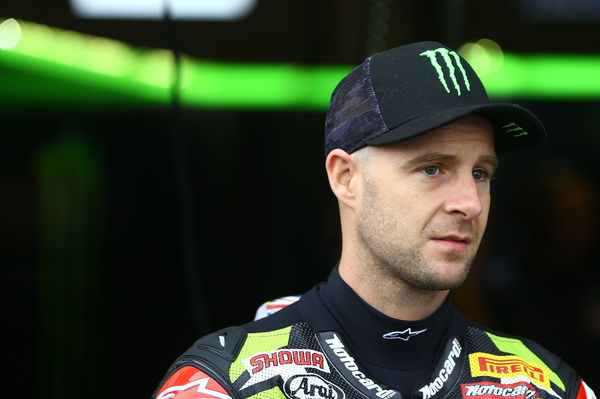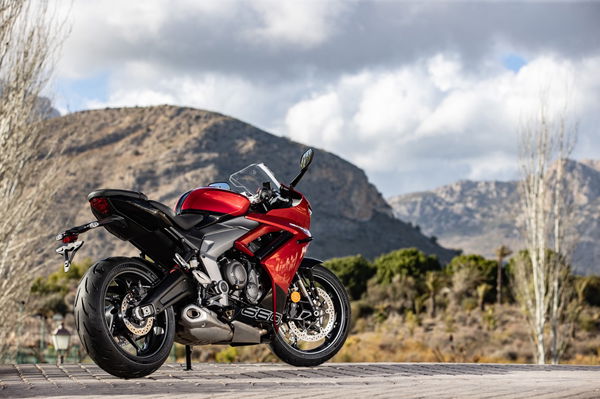Why don’t these manufacturers compete in WorldSBK?
There are as many as nine different Superbikes eligible and homolgated to compete in the WorldSBK Championship - so why don't they compete?
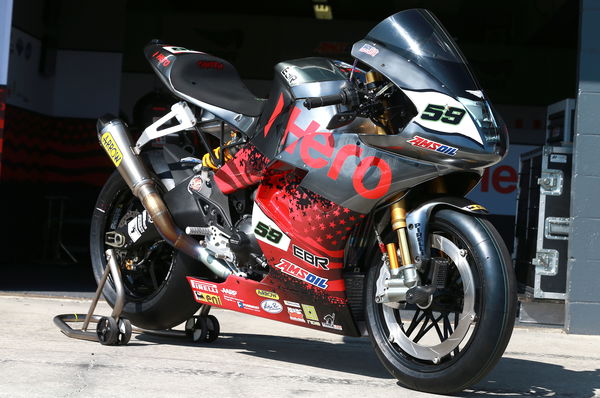
The WorldSBK Championship may have been going through something of a ‘plateau’ in terms of competitive machinery and race-winning riders but perhaps more than previous seasons there is an increasing buzz surrounding the 2020 WorldSBK season.
Jonathan Rea may once again be in green as he targets an unprecedented sixth WorldSBK title, but there is plenty of change around him, not least over at Yamaha and Honda, with each bringing new motorcycles into the mix for 2020.
Coupled with the new-for-2019 Ducati Panigale V4 R and BMW S1000RR, plus the venerable Kawasaki ZX-10RR, the 2020 WorldSBK grid will see plenty of well-funded, freshly developed machines stacking up the grid.
But what about the other Superbikes that could theoretically compete in WorldSBK?
Well, according to the 2019 homologation regulations there are nine Superbikes eligible to compete in the WorldSBK Championship (though this could change once the 2020 list comes out, most likely in February).
We know five of them – with the 2020 Yamaha R1 and the new Honda CBR1000RR-R to replace their predecessors – but we also have options from Aprilia, Suzuki, MV Agusta and EBR. So why don’t they compete?
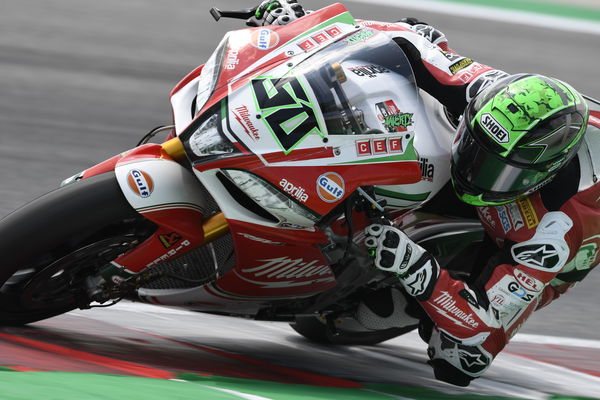
Aprilia RSV4
Perhaps the most surprising omission from the current WorldSBK grid is Aprilia, a manufacturer that secured titles in 2010, 2012 and 2014, and was winning podiums at this level as recently as 2018. However, while Aprilia never officially ended its involvement in WorldSBK, its decision to re-enter MotoGP has shifted focus and resources to that project, essentially allowing its entry to fall by the wayside.
The factory team morphed into a semi-works effort in 2016 with IodaRacing before switching allegiance to Shaun Muir Racing, but despite competitive results, updates were not forthcoming and the RSV4 began to slip behind its rivals. Ultimately it meant SMR jumped at the chance to take on the upgraded BMW Motorrad entry, leaving Aprilia with no entries for 2019.
Nonetheless, there is likely to be some Aprilia presence on the 2020 WorldSBK grid with CIV Superbike team Nuova M2 set to make a selection of appearances over the season.
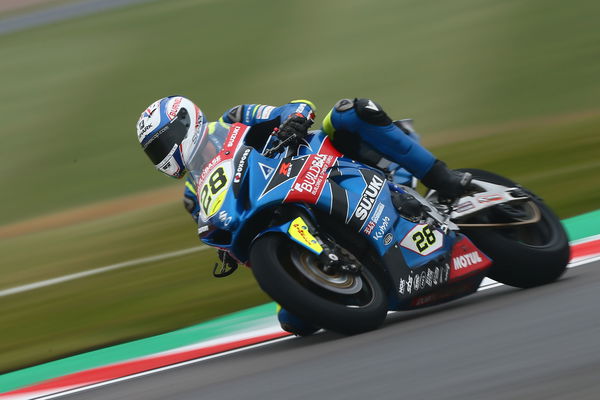
Suzuki GSX-R1000R
A mainstay of the WorldSBK Championship, Suzuki has been rather conspicuous by its absence in recent years despite developing an all-new GSX-R1000R to take on Honda, Kawasaki and Yamaha in the real world too.
There hasn’t been a full-time Suzuki presence on the grid since 2015 when the previous generation Gixxer was entered as a semi-works effort run by Crescent Racing. However, when Crescent became the factory Yamaha representative, Suzuki quietly fell away from the grid with the faint promise it would return with the new GSX-R.
However, like Aprilia, Suzuki’s attentions were being consumed by its renewed MotoGP effort, leaving little inclination to go back to WorldSBK with another pricey programme.
That’s not to say it didn’t try though, with sources suggesting Suzuki had campaigned Hawk Racing – which runs Suzuki’s BSB effort – to step up to WorldSBK with Bradley Ray, a rider it saw had great potential as a protégé following his run to the Title Showdown in 2018. The deal never came off (potentially to Ray’s detriment based on his troubled 2019 campaign) but it would have been a big ask either way.
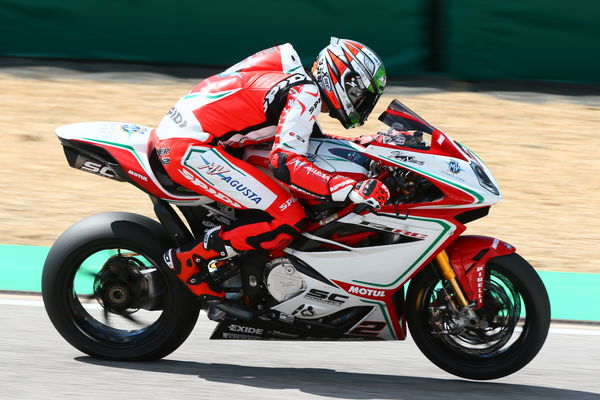
MV Agusta F4RR
The MV Agusta WorldSBK effort always showed promise but never quite delivered. The iconic Italian marque made the headlines when it returned to WorldSBK in collaboration with Supersport champions Yakhnich Racing, though that collaboration only lasted a few rounds as the Russian end of the deal fell apart.
Despite persistent reliability problems, the F4RR developed – slowly – into a competitive machine over the next five seasons, with Leon Camier especially wringing the best from the package in the three years he competed with the team, peaking with a highly-creditable eighth overall in 2017.
However, MV Agusta only ever committed to entering a single F4RR at any one time, instead choosing to focus its resource on the F3 in the WorldSSP Championship, which simply slowed down the bike’s development in the face of newer opposition. Indeed, the machine didn’t receive a single update worthy of a re-homologation certificate since 2015.
As such, the WorldSBK programme was wound down at the end of 2018 and is unlikely to return now MV has turned attentions towards Moto2 in addition to WorldSSP.

Erik Buell Racing 1190RX
Remember when EBR competed in WorldSBK? You’d be forgiven for forgetting but the American marque was a surprise addition to the grid in 2014 and (some of) 2015.
The American marque (formerly Buell) was in the midst of another renaissance – during which time it was heavily-invested by Indian conglomerate Hero MotoCorp - and had an ace card in the new, well-received 1190RX Superbike.
With that extra backing, EBR attempted to give the machine a global platform in WorldSBK but it was a flawed effort from the outset with the team struggling to make an impact with Pirelli rubber on unfamiliar circuits piloted by modestly successful domestic racers. Bizarrely, its only manufacturers’ points of the season came with a privateer wild-card EBR entry.
Undeterred, EBR returned in 2015 with the experienced Niccolo Canepa on its books and results were better… until it was forced to withdraw after four rounds due to financial issues at home. Those ‘issues’ were in fact bankruptcy and EBR was forced to scale down its production significantly when it returned to becoming a viable business.
The EBR 1190RX can still be bought and legitimately raced in WorldSBK, but one would question the wisdom as to why…
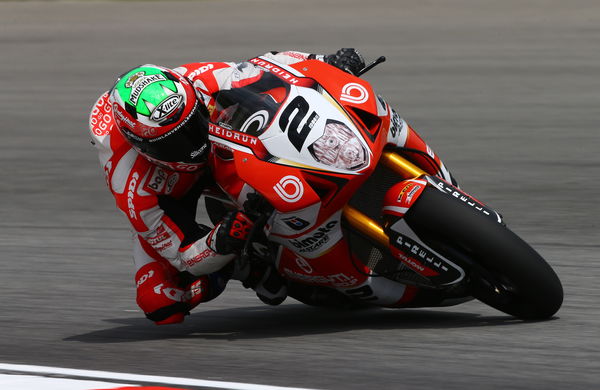
Honourable mentions
Bimota BB3
One of the more bizarre WorldSBK entries, Bimota made a surprise return to motorsport in 2014 with new project run by Alstare, the Belgian outfit that took Suzuki to title glory in 2017. The BMW-powered bike was entered into the short-lived EVO class, but it was competitive out of the box, winning numerous races within its classes and cracking the overall top ten with Christian Iddon and Ayrton Badovini.
However, Bimota was competing on borrowed time due to the manufacturer’s inability to produce enough of the models to meet homologation standard.
As such, it could only race on under the condition it couldn’t score points but once it became clear Bimota were not even close to meeting the criteria in the timeframe stipulated, the manufacturer was classified as disqualified from all races it started.
